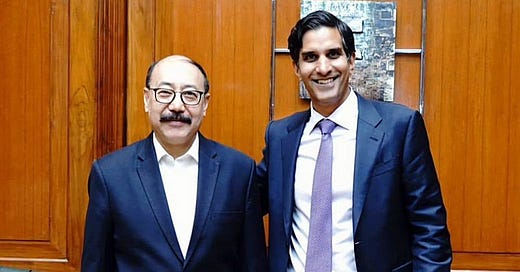India stiffens its criticism of Russia’s attack on Ukraine
A balancing act that takes China and regional tensions into account
By: John Elliott
India is beginning to shift its position on Russia’s invasion of Ukraine – and resist pressure from Moscow – as the full horrors of the devastation and human cruelty become daily more evident.
It has not joined the US, Europe, and other Western powers in voting against Russia at the United Nations where it has abstained 11 times since the…
Keep reading with a 7-day free trial
Subscribe to Asia Sentinel to keep reading this post and get 7 days of free access to the full post archives.



